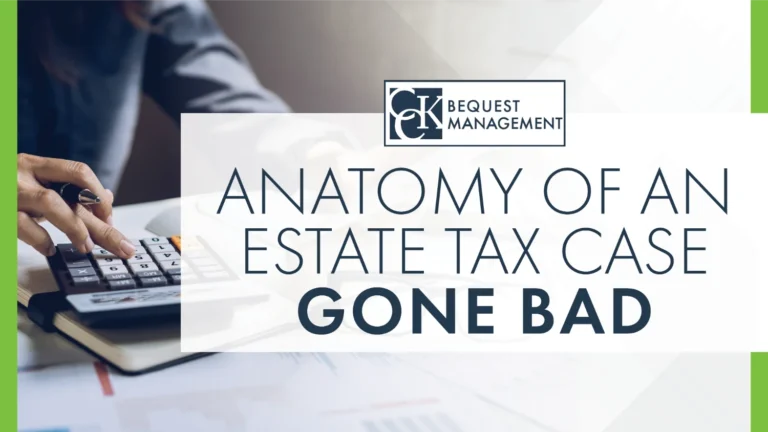Anatomy Of An Estate Tax Case Gone Bad

Rarely do we get to see the inner workings of an estate tax case. A recent decision of the United States Tax Court gives a play-by-play view of how mishandling these matters can whittle down the value of an estate and dramatically reduce the amount available for beneficiaries. Estate of Anne Milner Fields v. Commisioner of Internal Revenue, T.C. Memo 2024-090.
Decedent Anne Fields died in 2016 with an estate worth more than $20 million. The largest asset, by far, was her controlling interest in a family business, valued at $17 million.
Shortly before her passing, Fields’ nephew/executor did a bit of clumsy deathbed estate planning and juggled his aunt’s business interests to lower their value for estate tax purposes. He reported those assets to be worth under $11 million, far below the original valuation of $17 million. The estate tax return reported the tax owed to be around $4.5 million, which was paid.
IRS audited the return and disregarded the deathbed restructuring of the family business. The agency recomputed the tax owed based on the original $17 million valuation. It further imposed a 20% accuracy-related penalty relating to the dubious support for the reduced valuation. At the end of the day, the Fields estate owed an additional $2.5 million in estate taxes and a $500,000 penalty on top of that. In other words, the amount available to beneficiaries was $3 million less than anticipated before the tax snafu.
CCK COMMENTS: This case is a good example of why charities should monitor the progress of estate administration cases where federal estate tax may be due. No organization wants to make plans based upon a large gift that does not materialize as expected. Oftentimes, the warning signs will be there for the bequest manager who knows where to look. Moreover, remember that any assets distributed from a taxable estate are typically subject to an automatic estate tax lien, meaning that they can be reclaimed if needed to satisfy tax obligations. 26 U.S.C. § 6324A. The IRS does not appear to exclude charities from the consequences of the estate tax lien. See IRS Field Service Advisory, September 5, 1997.
(This blog was originally published on our LinkedIn on March 18, 2025.)